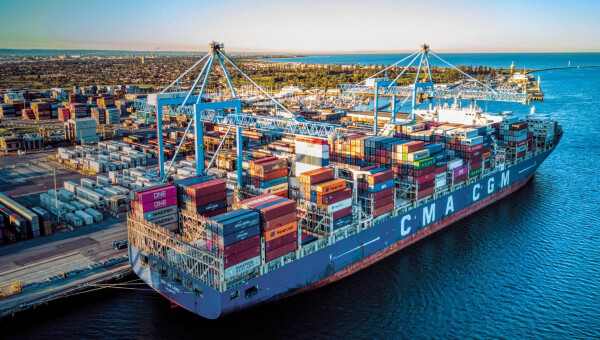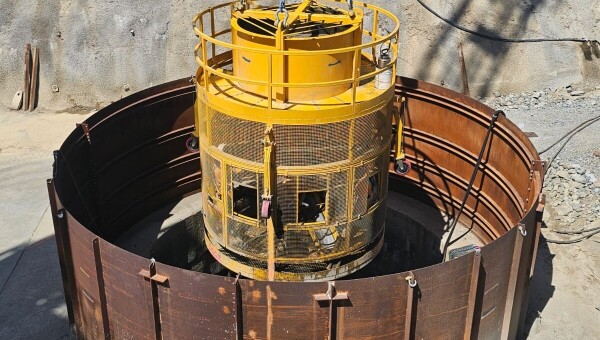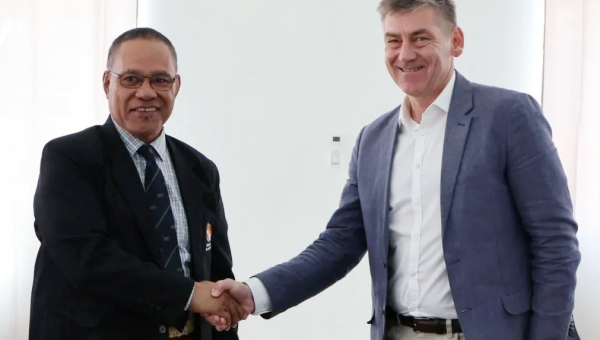The St Marys Bay Area Water Quality Improvement project secured another win with the completion of the last tunnelling drive at the end of 2020. Hinehōaka, the project’s Tunnel Boring Machine (TBM), successfully completed over one kilometre of micro-tunnelling in less than six months. The 1,120- metre storage pipeline, which includes a marine outfall, was constructed in three separate tunnelling drives using pipe-jacking methods.
Two shafts were constructed in Council parkland at the bottom of the cliff face to accommodate each tunnelling drive and a third shaft needed to be constructed in the narrow streets around St Marys Bay. This shaft was carefully and cleverly designed to be able to retrieve the TBM from a 3.8-metre diameter shaft, 25 metres below ground.
Each tunnelling drive had its own unique challenges but one of the major challenges the project team faced was tunnelling very close to, and underneath, restored villas worth millions of dollars in one of Auckland’s oldest suburbs. To mitigate stakeholder issues and concerns, the project set up a ‘SiteHive’ unit to collect data while the TBM was operating.
The unit continuously collected noise, dust and vibration monitoring readings from the worksite and this data helped proactively manage consent compliance, as well as record the impact of the operations. When noise reached predetermined levels a photo and sound recording were taken to capture the activity onsite. This constant monitoring meant the team could ensure construction activity operated within the consent conditions and any exceedances were investigated to see what could be done differently to ensure compliance in the immediate future.
Health and wellbeing has also been a huge focus on this project, as all three tunnelling drives were carried out by the team working in shifts over a 24-hour, five days per week work period. To educate the team around mental health, McConnell Dowell invited Mates in Construction, a programme aimed at improving mental wellness and reducing suicide in the construction industry, to run sessions onsite with the crew. We are proud to say that the St Marys Bay Area Water Quality Improvement project is the first McConnell Dowell site and fourth site in New Zealand to be Mates in Construction accredited.
The new pipeline will reduce wastewater overflows to St Marys Bay and Masefield Beach by 95 per cent. The high flows after rain events will be stored in the new larger capacity pipeline and pumped back into the sewer network for treatment when there is capacity. As well as reducing overflows, once complete the new marine outfall will discharge to an outfall far away from places where people swim.
The project is due to be completed during 2021.




